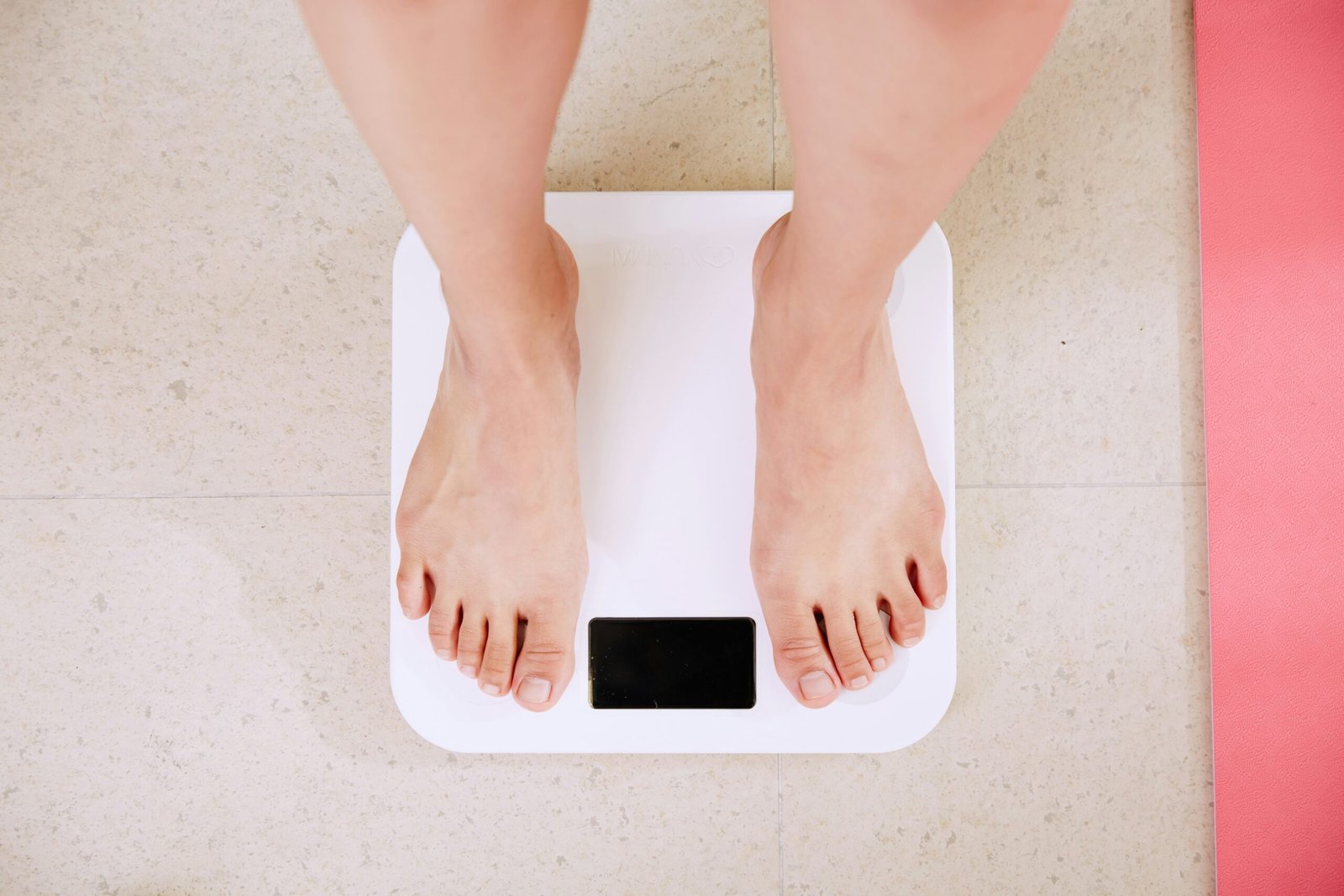Understanding Weight Loss: The Basics
Weight loss is a complex physiological process that occurs when the body expends more calories than it consumes. The foundation of this process rests on the concept of a calorie deficit, which is achieved when energy expenditure surpasses energy intake. For effective weight management, it is essential to understand not only how calories work but also the various factors influencing metabolism, a critical player in weight regulation.
Metabolism refers to the biochemical processes that convert food into energy. It can be broadly categorized into three components: basal metabolic rate (BMR), physical activity, and the thermic effect of food. BMR represents the energy required to maintain basic physiological functions while at rest, accounting for a significant portion of calorie expenditure. Physical activity, which includes exercise and daily movements, contributes to additional energy burned. The thermic effect of food involves the energy applied to digest, absorb, and store the nutrients we consume. By understanding these components, individuals can better manage their dietary choices and exercise routines to promote a healthy weight.
Furthermore, the relationship between energy intake and energy expenditure indicates that achieving weight loss is not solely about drastically cutting calories. Sustainable weight loss requires a balanced approach. Setting realistic and achievable goals is paramount, as overly aggressive targets may lead to frustration and eventual discontinuation of efforts. Instead, women should aim for gradual weight loss—approximately 1-2 pounds per week—which has been shown to be both effective and maintainable over time.
In essence, understanding the basic principles of weight loss can empower individuals to create informed strategies that not only promote quick results but also ensure long-term success in their weight management journey.
Tip 1: Prioritize Protein
When it comes to effective weight loss strategies, prioritizing protein in one’s diet can have a significant impact on achieving desired results. Protein plays a crucial role in enhancing satiety, which helps individuals feel fuller for longer periods, ultimately leading to reduced calorie intake throughout the day. This effect is especially beneficial for women aiming to shed pounds quickly and sustainably.
Moreover, protein can reduce cravings, which are often a hurdle in maintaining a healthy diet. By incorporating sufficiently high amounts of protein, women may find themselves less tempted by sugary or high-carb snacks, thereby fostering healthier eating habits. Protein-rich foods also require more energy for digestion, meaning that they can help to boost metabolism, thereby enhancing the body’s ability to burn calories.
To integrate more protein into daily meals and snacks, consider including high-protein foods in each diet segment. Breakfast options might consist of Greek yogurt, eggs, or a protein smoothie filled with nutritious ingredients. For lunch and dinner, lean meats such as chicken, turkey, or fish can serve as excellent main dishes. Plant-based sources of protein, like legumes, lentils, tofu, and quinoa, are also valuable options for those following vegetarian or vegan diets.
Snacking can often be an overlooked area when focusing on protein intake. Instead of reaching for chips or cookies, consider healthier alternatives such as hummus paired with vegetables, cottage cheese with fruit, or a handful of nuts. By implementing these strategies, women can effectively increase their protein intake, aiding in weight loss and promoting overall health.
Tip 2: Stay Hydrated
Staying hydrated is a fundamental aspect of any effective weight loss strategy. When it comes to shedding pounds, proper hydration plays a pivotal role in managing body functions and regulating metabolism. Drinking sufficient water not only helps to maintain optimal bodily functions but also aids in curbing hunger. For instance, consuming water before meals can lead to reduced caloric intake, as it often creates a sensation of fullness, which diminishes the urge to overeat. Studies have shown that individuals who drink water before their meals may consume fewer calories, which ultimately contributes to weight loss.
Moreover, replacing sugary beverages with water is a significant step in improving overall health and facilitating weight loss. Sugary drinks such as sodas and juices are high in calories and can lead to weight gain if consumed excessively. Transitioning to water can drastically cut daily caloric intake, consequently promoting weight loss. In addition, flavored water or herbal teas can serve as viable alternatives, enhancing hydration without the added sugars often found in traditional beverages.
To ensure adequate hydration throughout the day, women should aim for at least eight glasses of water daily, although individual needs may vary based on factors like activity levels and climate. Simple strategies to increase water consumption include carrying a reusable water bottle, setting reminders to drink water, and incorporating water-rich foods such as fruits and vegetables into daily meals. This not only boosts hydration but also provides essential nutrients that support overall health.
Furthermore, staying well-hydrated can have a positive impact on energy levels. Dehydration can lead to fatigue and hinder physical activity, which is vital for weight loss. By prioritizing hydration, women can maintain higher energy levels, facilitating more effective workouts and increased calorie expenditure.
Tip 3: Keep Track of Your Food Intake
Keeping track of your food intake is a crucial component in the journey towards effective weight loss. It not only fosters mindful eating habits but also allows individuals to gain a deeper understanding of their dietary choices. By monitoring what you eat, you can identify patterns, recognize emotional triggers, and make more informed choices that align with your weight loss goals.
In today’s digital age, numerous apps and tools are available to assist women in tracking their food intake. Applications such as MyFitnessPal, Lose It!, and Cronometer provide an accessible platform to log meals, track calories, and analyze nutritional information. These tools often come equipped with extensive food databases, making it easier to input items and gauge portions accurately. Utilizing such technology can transform the tracking process from a tedious task to an insightful experience.
The psychology behind mindful eating plays a significant role in successful weight management. By being aware of what and how much you consume, you can cultivate a more conscious relationship with food. This practice encourages individuals to savor their meals, thus enjoying the flavors and textures while being attuned to feelings of hunger and fullness. Mindful eating has been shown to reduce binge eating and emotional eating behaviors, making it a powerful ally on your weight loss journey.
Moreover, maintaining a food journal can further enhance your ability to track food intake. This can be done in a physical notebook or digitally through journaling apps. Recording not just what you eat, but also how you feel before, during, and after meals can provide invaluable insights into your eating habits. Over time, patterns may emerge, enabling you to address triggers that lead to unhealthy choices. By implementing these strategies, women can effectively manage their food intake and support their weight loss efforts.
Tip 4: Incorporate Strength Training
Incorporating strength training into a weight loss regimen is essential for women seeking to shed pounds effectively. Strength training involves the use of resistance, typically through free weights, machines, or body weight exercises, to enhance muscle mass. One of the primary benefits of developing muscle is its direct correlation with an increased resting metabolic rate. As muscle tissue requires more energy to maintain than fat tissue, elevating muscle mass can facilitate the burning of more calories, even when at rest.
By integrating strength training into your weekly routine, you can significantly enhance your weight loss efforts. A balanced approach that combines cardio with resistance training often yields better fat loss results than cardio alone. Additionally, strength training assists in improving overall body composition, allowing for a leaner physique through fat reduction while promoting muscle growth. It is not only beneficial for controlling weight but also boosts confidence and encourages a more positive body image.
For those new to strength training, various exercises can be included in a workout regime. Effective movements such as squats, lunges, push-ups, and deadlifts can be performed with minimal equipment. Furthermore, utilizing resistance bands and kettlebells can provide effective training options. A combination of these exercises, performed two to three times a week, can lead to significant improvements in strength and composition.
Moreover, strength training helps improve functional fitness, which enhances daily activities. Strengthening muscle groups translates to increased stability and balance, reducing the risk of injury. Overall, incorporating strength training not only aids in weight loss but also contributes to long-term health benefits, making it an indispensable part of any weight loss strategy for women.
Get Plenty of Sleep
Sleep is a crucial yet often overlooked component of effective weight loss strategies. Research has consistently demonstrated a connection between sleep quality and weight management, indicating that inadequate sleep can lead to undesirable weight gain. When individuals do not obtain sufficient rest, the body’s hormonal balance is disrupted, leading to increased levels of ghrelin, the hunger hormone, and decreased levels of leptin, which signals satiety. Consequently, this hormonal imbalance can lead to an increase in appetite, particularly for high-calorie and unhealthy food options, making it difficult to adhere to weight loss goals.
To facilitate better sleep, establishing a consistent bedtime routine can be an effective strategy. This might involve setting a regular sleep schedule, where one goes to bed and wakes up at the same time each day, thus reinforcing the body’s natural circadian rhythms. Additionally, limiting exposure to electronic devices before bedtime is essential, as the blue light emitted by screens can interfere with melatonin production and disrupt sleep patterns. Consider implementing a relaxing pre-sleep ritual, which may include practices such as reading, taking a warm bath, or practicing mindfulness meditation.
Another vital aspect of improving sleep quality is managing stress levels throughout the day. Chronic stress can lead to restless nights, affecting overall energy levels and motivation to engage in healthy behaviors. Techniques such as deep breathing exercises, yoga, or engaging in a creative hobby can be beneficial in alleviating stress. Lastly, creating an optimal sleeping environment is crucial; this includes ensuring a dark, quiet room with a comfortable mattress and appropriate room temperature. By prioritizing sleep, individuals can improve their overall well-being and make healthier eating choices, ultimately contributing to effective weight management.
Tip 6: Eat More Fiber
Incorporating more dietary fiber into your meals is a powerful strategy for weight loss. Fiber, found in a variety of foods, is not only beneficial for digestive health but also plays a crucial role in promoting satiety and controlling overall calorie consumption. There are two types of dietary fiber: soluble and insoluble, both of which contribute to a healthy digestive process. Soluble fiber absorbs water and forms a gel-like substance, which helps slow the digestive process, leading to a gradual release of energy and prolonged feelings of fullness.
Foods high in fiber, such as fruits, vegetables, legumes, and whole grains, can be excellent additions to your diet. For instance, you can increase fiber intake by snacking on apples or pears, which provide both hydration and essential nutrients. Incorporating beans or lentils into salads or soups can significantly boost fiber content, making meals more satisfying. Whole grains, including oats, brown rice, and quinoa, also offer an excellent source of fiber and can replace refined grains in various recipes.
By focusing on a fiber-rich diet, women can effectively reduce their calorie intake without feeling deprived. High-fiber foods not only help maintain a balanced digestive system but also prevent overeating by keeping you fuller for longer. Furthermore, these foods are often nutrient-dense, allowing for a healthful way to support a weight loss journey. To achieve the recommended daily fiber intake, aim for at least 25 grams per day, which can typically be accomplished with a few smart choices throughout the day.
Ultimately, integrating fiber into meals is a practical and efficient way to enhance weight management efforts and promote overall health. As you make these dietary adjustments, you may begin to notice improvements not only in your weight but also in your energy levels and digestive comfort.
Tip 7: Reduce Refined Carbs and Sugars
Refined carbohydrates and sugars can significantly hinder weight loss goals, often leading to increased hunger and cravings. These ingredients are present in a wide array of foods, including white bread, pastries, sodas, and processed snacks. When consumed, they can cause rapid spikes in blood sugar levels, followed by a sharp decline, which often results in additional calorie consumption later in the day. This cycle can contribute to weight gain and negatively affect overall health, making it essential for women aiming to shed pounds to monitor their intake carefully.
One of the most effective strategies to reduce refined carb and sugar consumption is through meal planning and preparation. By preparing meals at home, women can control the ingredients and make healthier choices. Opting for whole food alternatives—such as brown rice instead of white rice, or whole wheat products instead of their refined counterparts—can provide more fiber and nutrients, which help in promoting satiety and reducing overall calorie intake.
In addition to choosing whole foods, reading food labels is crucial. Many processed foods contain hidden sugars and refined grains, which may not be immediately obvious. By familiarizing oneself with ingredient lists and opting for products with minimal added sugars and whole grains, one can better navigate dietary choices. It is also beneficial to switch out sugary beverages for water, herbal tea, or other low-calorie drinks to further reduce sugar intake.
Furthermore, incorporating healthy fats and proteins into meals can also help stabilize blood sugar levels, reducing cravings for sugary snacks. Foods rich in healthy fats, such as avocados, nuts, and olive oil, can provide necessary nutrients while keeping one satisfied. Ultimately, understanding the impact of refined carbs and sugars on the body, along with practical strategies for reducing their intake, is key for women seeking effective weight loss solutions.
Tip 8: Find an Exercise You Love
Finding an exercise that you genuinely enjoy is crucial for sustainable weight loss and overall well-being. Engaging in physical activity should not feel like a chore; rather, it should be an enjoyable part of your daily routine. When you love the exercise you are doing, it becomes easier to stick with it over the long term, leading to better results. There are numerous forms of exercise available, from traditional cardio to more holistic practices like yoga, and it is essential to explore different options to discover what resonates with you.
Cardiovascular exercises, such as running, cycling, or swimming, are often recommended for efficient calorie burning. However, some women may find more joy in activities like dancing, hiking, or group sports. Opting for exercises that prompt social interaction can also enhance your motivation. Joining a class or a local sports team can not only provide structure but also allow you to meet like-minded individuals who share your fitness goals.
On the other hand, mind-body activities, such as yoga and Pilates, focus on flexibility, strength, and mental well-being. These exercises can be particularly beneficial for women seeking a low-impact option. Engaging in these practices may foster a deeper connection with your body, improving both physical fitness and emotional resilience.
Additionally, consider integrating exercise into your daily life in a way that feels natural. Whether it is taking the stairs instead of the elevator, going for a brisk walk during lunch, or practicing a fun fitness routine at home, the key is to create an environment that promotes movement. Remember, the goal is to find something that you love, as this will not only make weight loss more achievable but also promote a healthier lifestyle overall.
Celebrate Your Progress
Recognizing and celebrating weight loss milestones is an essential aspect of any successful weight management journey, particularly for women striving to shed pounds. Each small achievement, whether it is losing a few pounds, achieving a fitness goal, or simply sticking to a healthy eating plan for a week, deserves acknowledgment. Celebrating these successes can foster a positive mindset, encouraging continued commitment and motivation. It instills a sense of accomplishment that propels individuals towards their ultimate goals.
One effective way to celebrate progress is by setting up incremental goals, allowing for points of achievement along the weight loss path. These can include rewarding oneself after completing a certain number of workouts, reaching a specific weight, or maintaining dietary discipline over a set period. Assessing these milestones can help in recognizing the hard work and effort put into the journey, thereby promoting self-esteem and resilience.
When it comes to rewarding oneself, it is vital to choose healthy alternatives rather than reverting to old habits that may sabotage progress. Consider treating yourself to non-food rewards, such as a new workout outfit, a spa day, or a leisurely day out with friends. These alternatives not only recognize your achievements but also reinforce healthy behaviors. Keeping a journal to document the journey can further enhance this experience. A written record allows for reflection on the progress made, encouraging sustained motivation and celebrating successful changes.
Ultimately, embracing and celebrating these achievements, no matter how small, can contribute to building healthy habits that last beyond the initial weight loss phase. By focusing on success and maintaining a rewarding mindset, women can lay a foundation for ongoing success in their weight management endeavors.




